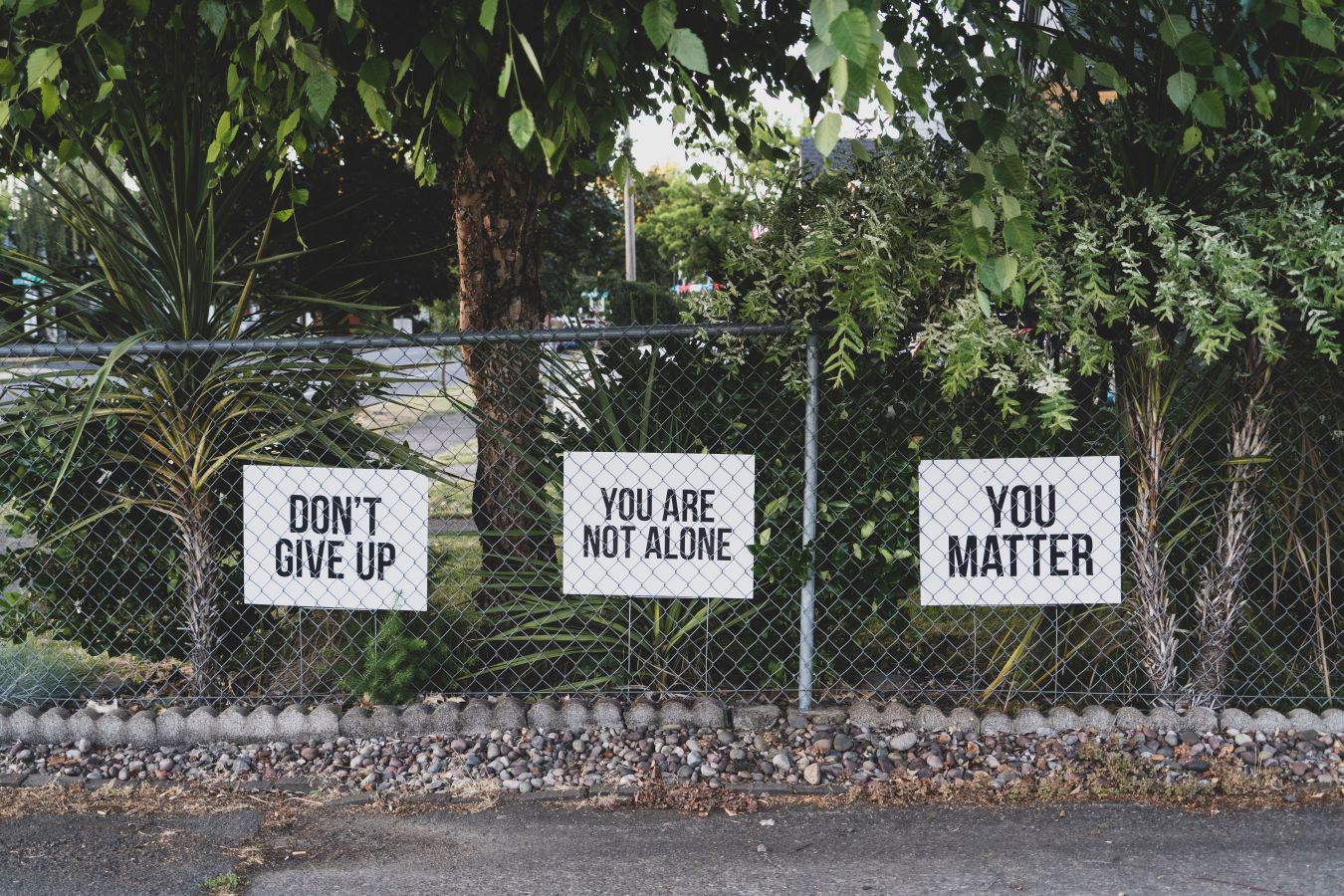As you’ll have no doubt seen, this week is Mental Health Awareness week. At a time where much more of the country is suffering mentally, exacerbated by the wide-ranging impacts of Covid, I thought I’d use this blog to share my experiences and the skills I’ve gained since struggling mentally with one of the main stressors: money.
‘But don’t you write about how to be good with your money?’ and the answer is yes, but that doesn’t mean I was always good with money. In fact I was not very good with money at all, but I did learn a couple of things along the way.
In(dependence)
Cast your minds back to the mid-2000s. For me, it was a time of fast-living and fast-punk music. I’d moved out of my parents’ home, was working and feeling independent. I was doing all sorts of grown-up stuff like getting the swankiest new phone on contract, renting an apartment in town, buying my at-the-time dream guitar (through a loan) and a credit card – just for emergencies of course.
All of these things provided the illusion of success, but just like the video quality on my state-of-the-art camera phone, I couldn’t really see what was happening in the background. When I look back now, it was obvious that I wasn’t earning enough to sustain my lifestyle, but the bank, credit card company and other creditors all approved my applications so I trusted them that I could afford it.
Fairly soon after I’d taken on these debts, I was made redundant. The emergency credit card was quickly maxed out, as was another… and another. It’s remarkable how things can get so quickly out of hand. By the time I’d got a new job, the debt had escalated to become unmanageable, and I was falling behind on payments.
My phone would ring all day with creditors chasing payments. My most distinct memory of my lowest point was the dread that would creep in every evening. I’d dream about angry, red letters falling on my doormat, and would fall asleep with one thought occupying my brain — it’s all going to come crashing down tomorrow.
The only way is up
To this point, I’d kept everything from my family and friends, though I’m sure some of them knew what was going on. Eventually, in a conversation with my Dad, it all came out and I told him the mess I was in. Even with no plan to fix it all, just by saying it out loud I felt a weight lift from my shoulders, and that is the first lesson I’d share: talk about it. If I’d done this much earlier, I wouldn’t have got myself into such a mess mentally or financially.
My dad offered to pay off the most overdue and smallest debts (the snowballing effect) but we settled on an interest-free loan. I was worried I wouldn’t learn my lesson if I was bailed out and honestly it helped with the shame I felt by getting myself into this mess. I worked out what I could really afford to pay him back every month and stuck to it until I’d fully repaid him back.
Advice point number two: work out what you can realistically afford to pay and try your best to stick to it. Getting some of it on a more even keel can spread such positivity through your mind, it feels like you’re genuinely turning a corner.
I was lucky to have my Dad but not all of you will be as lucky as me. In that case you need to prioritise your debt and make sure that you can look after yourself. Dealing with mortgage or rent arrears should be your first priority and keeping a roof over your head. Second should be any child support or other family commitments you might have. Last, will be any credit cards, loans or payday loans – no matter how loud they shout. Tip 3 is prioritise your debt.
Thankfully, today there is a lot more awareness of mental health and this extends to financial services. Expedited by the mental health challenges of Covid, most of the big banks, credit card companies and the like have much more support in place to help you if you’re suffering mentally as a result of money worries.
Even so, it can be very daunting to call and speak to companies, especially if, like me, you suffer from anxiety and panic attacks from time to time. While professional help is vital for ultimate progression, when I’m feeling overwhelmed, I try to trick my brain. Some creditors might push you to pay more, but be realistic and stick to what you can afford. If they hassle you, explain that you’re having trouble and ask them to stick to written communications. They’re less likely to make unreasonable demands if they have to write them down.
Meditation, breathing exercises (the CALM app is great for this, even the free version) and doing a completely different activity (mine is guitar) for a bit, help to stop my thoughts from darting off in every direction and focus on the task at hand. It doesn’t always work, but like most things the more you practise the better you get. That’ll be the fourth tip: try exercises to help put your thoughts in order. It’ll also likely lower your heart rate and dry out your palms a bit.
You’re not alone. At all.
As mentalhealth.org.uk explains, often people assume that because people are in debt that they’ve lived outside of their means. But actually, unemployment/redundancy are the most common causes for debt problems (though I’ll admit that I was both). It could come from a change in circumstance due to poor health or perhaps splitting up from your partner. Bills mount up and things can get quickly out of control.
Money and mental health problems are often closely linked. A study in 2010 from the Royal College of Psychiatrists found that half of UK adults with debt problems also suffered with mental health problems. Which makes sense because one exacerbates the other. It can be difficult to even picture a way out.
It seems strange to end on Covid, but bear with me. The persistent worry over our loved ones and not being able to do many of the things which raise our mood means many more people are suffering mentally now than before. Though it’s unfortunate it’s taken a pandemic to spur the industry into action, there’s more support now from well-informed people in financial services. If you need to speak to them, it’ll probably be a much easier experience than it was before.
It can take a lot of practice to get back to a place you like mentally, so don’t be hard on yourself. Just take it one day at a time.
To remind you, here are my top tips:
- Talk about it
- Work out what you can afford and stick to it
- Prioritise your debts
- Use exercises to focus your thoughts
- Don’t be hard on yourself.
Here are some helpful links which can provide free advice on money and anxiety:
Photo by Dan Meyers on Unsplash


